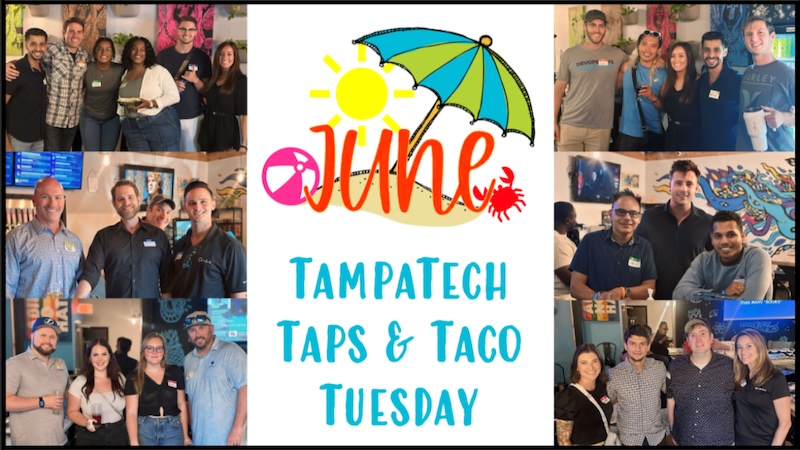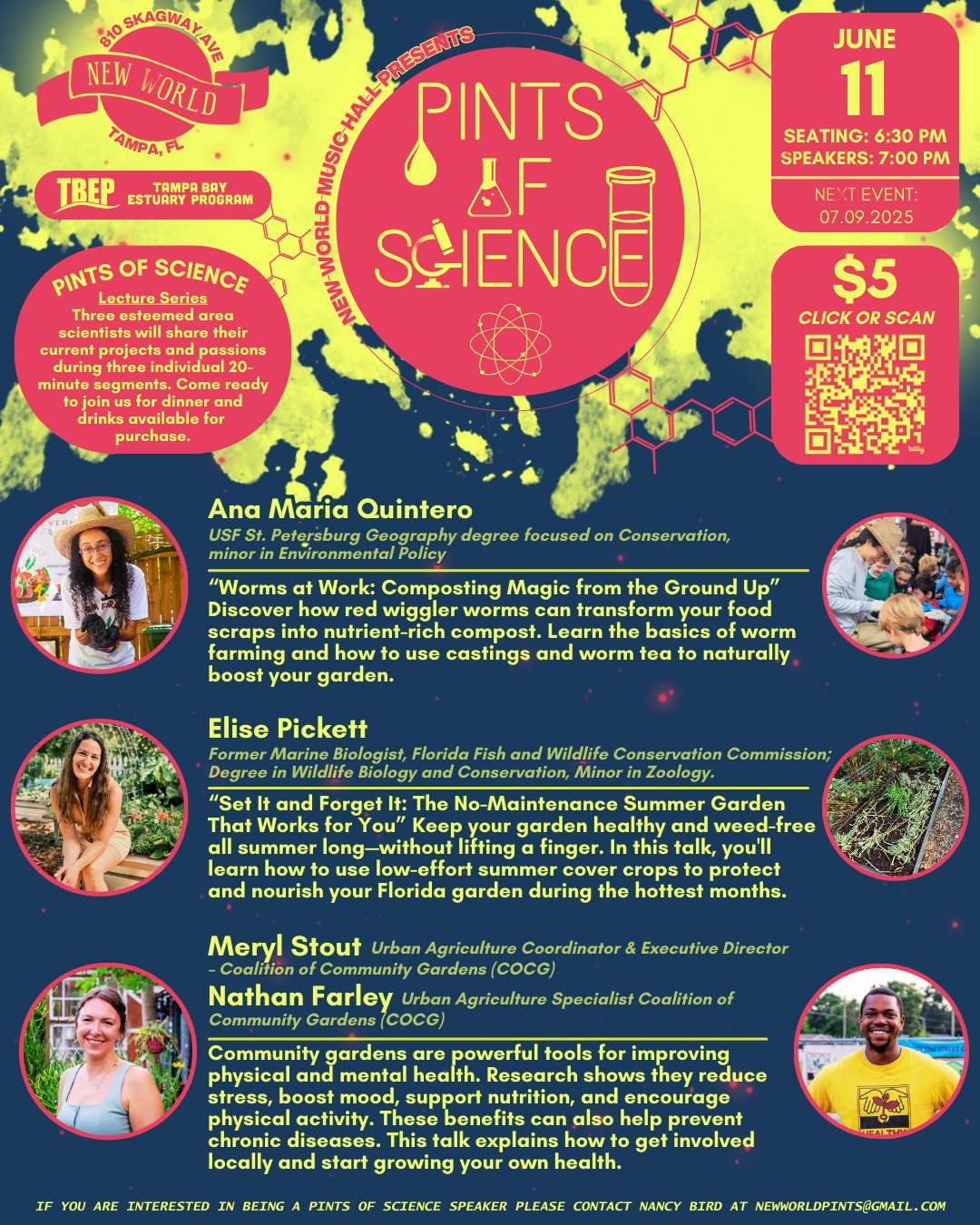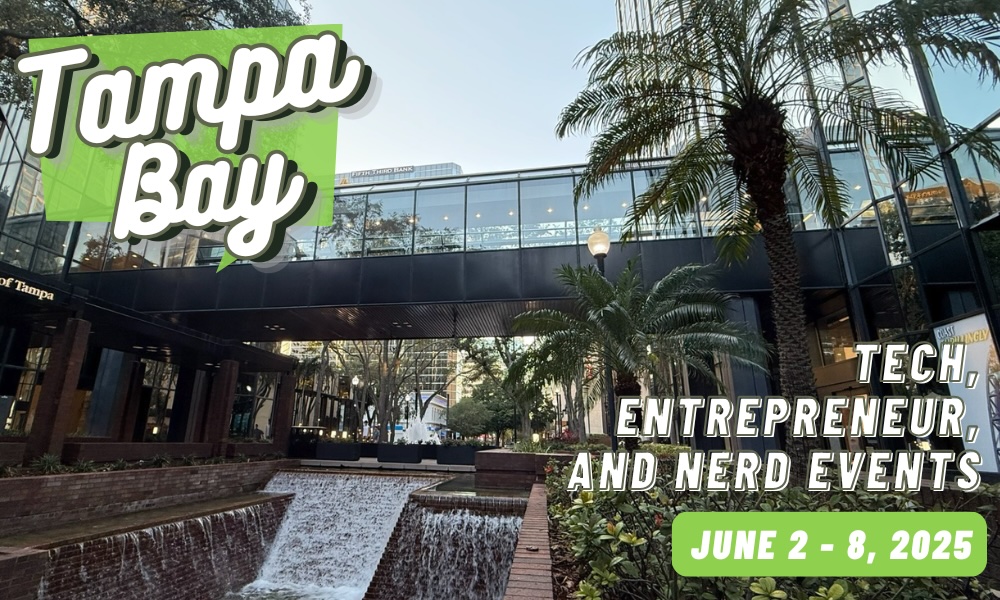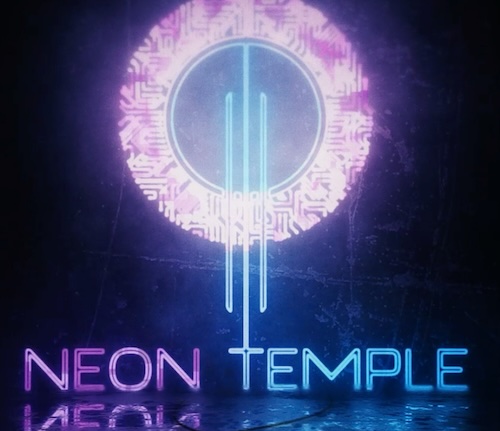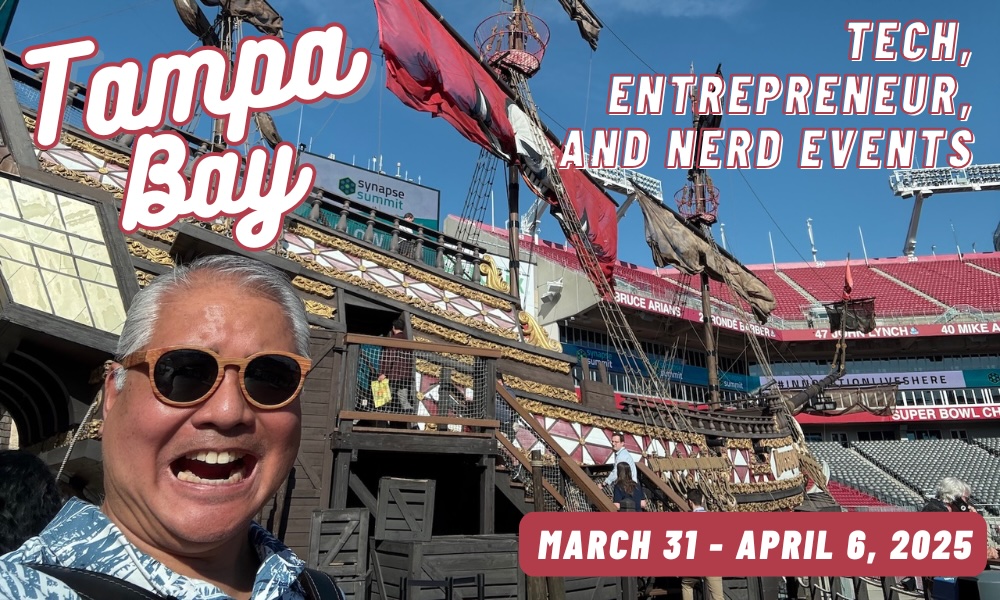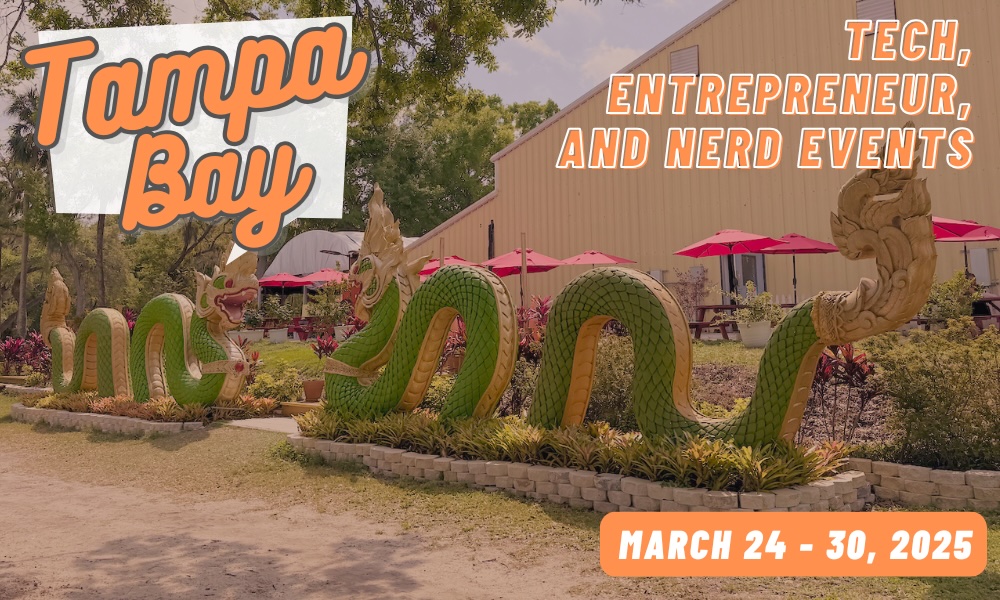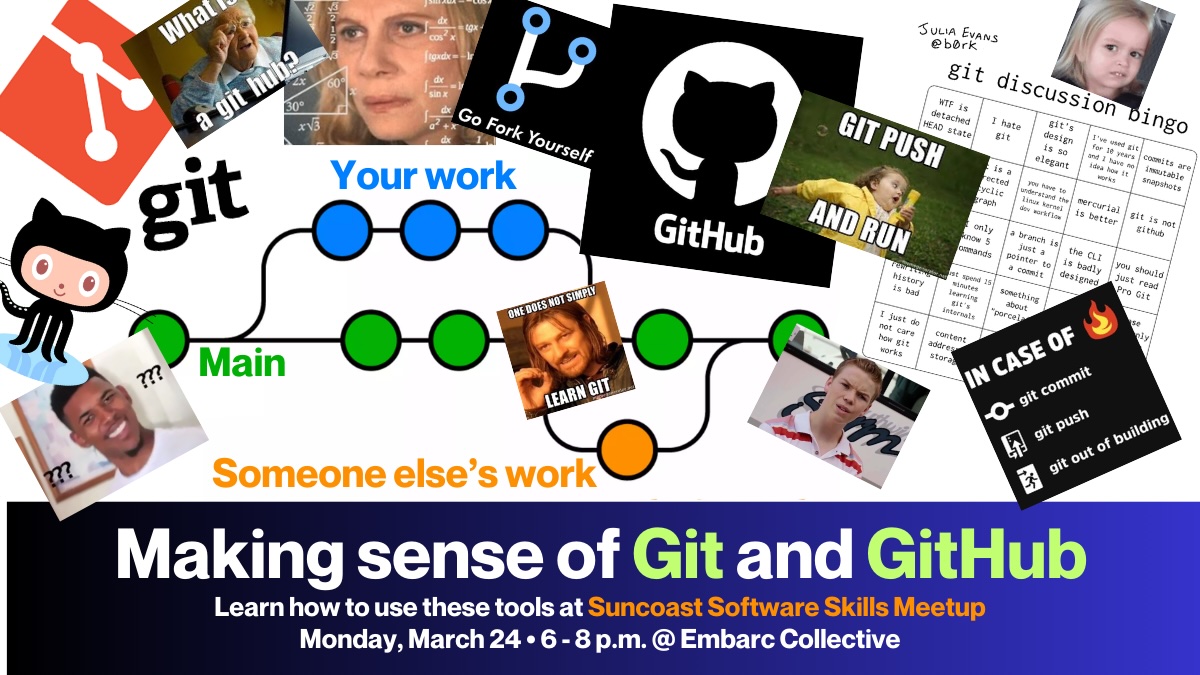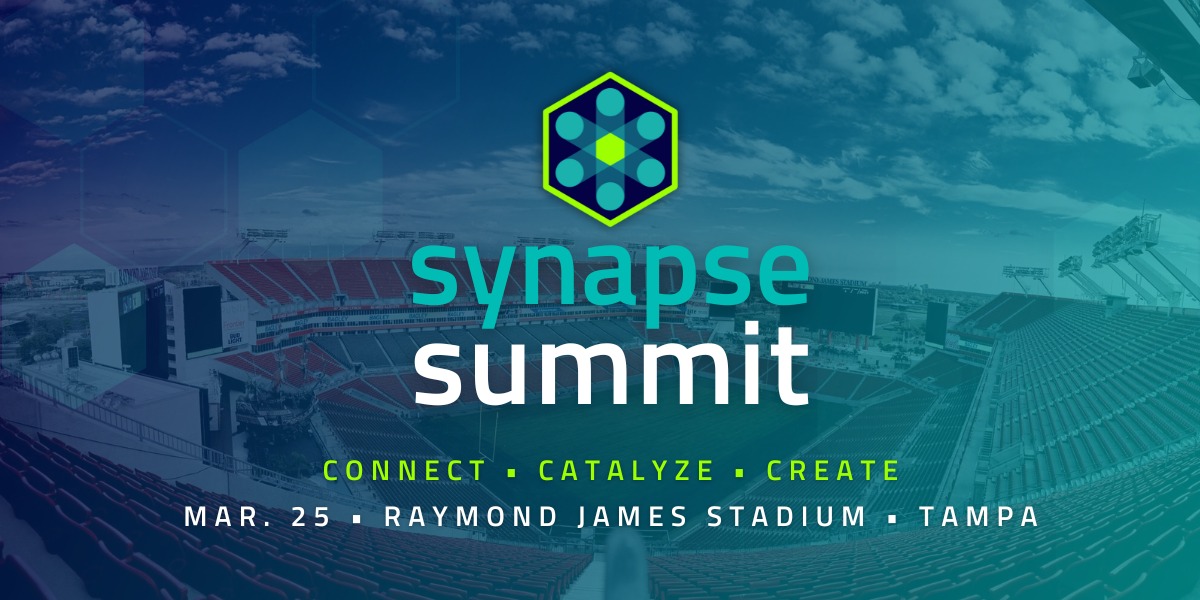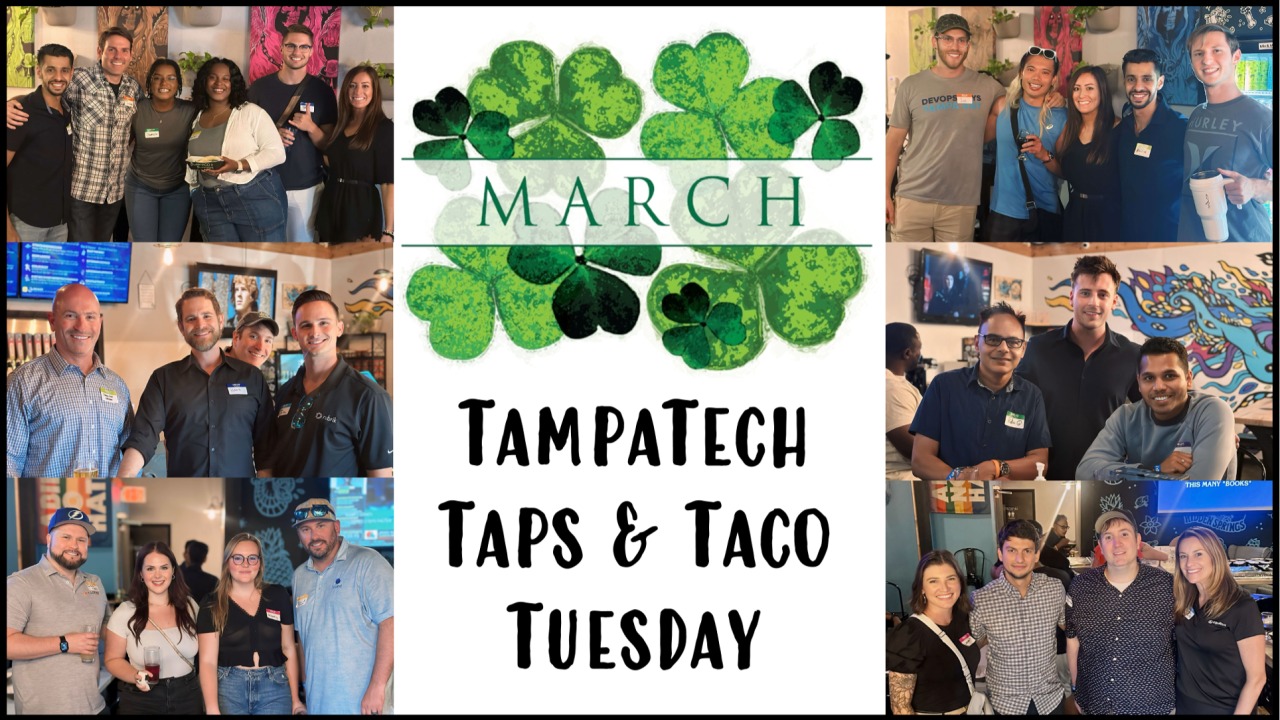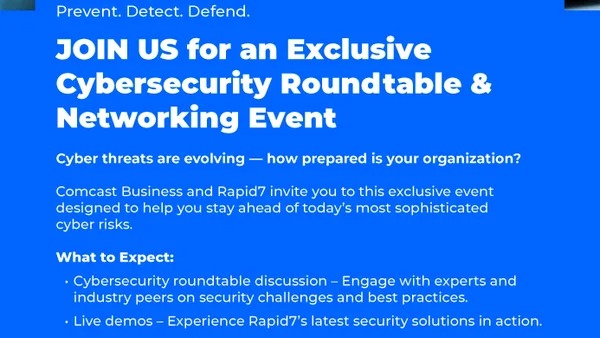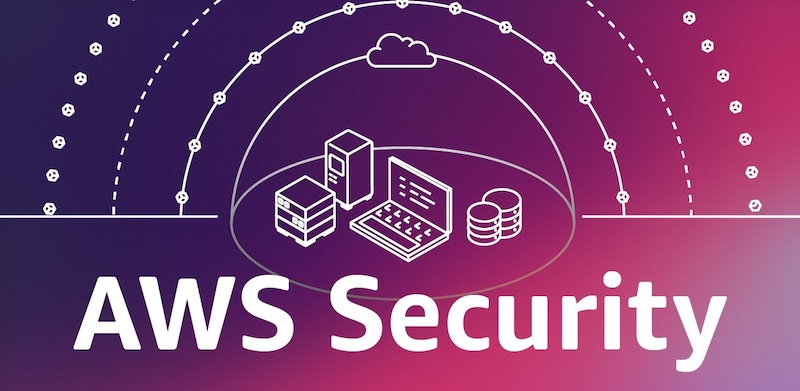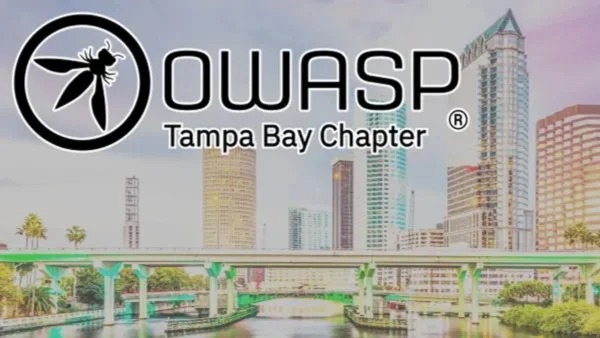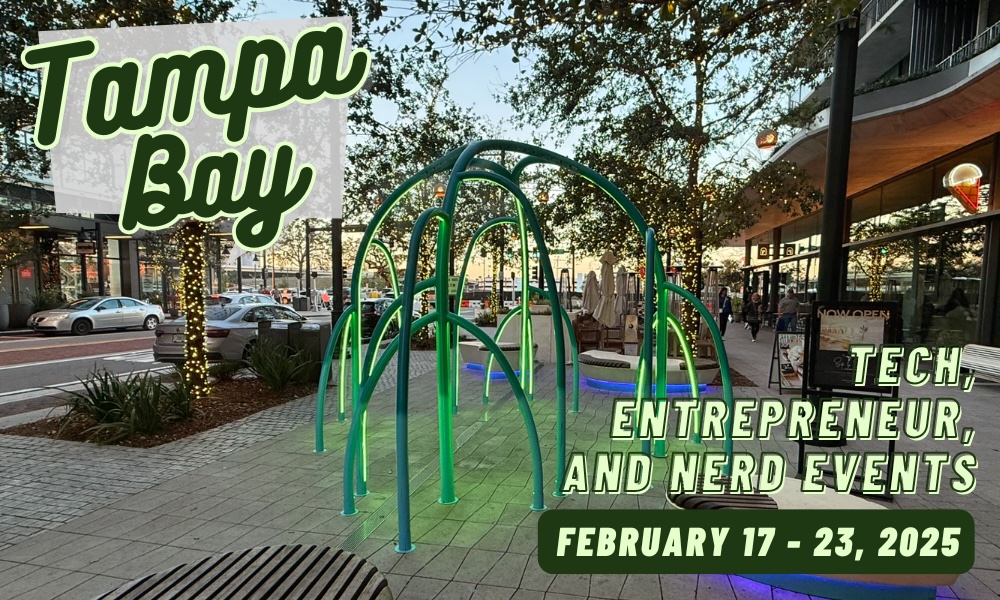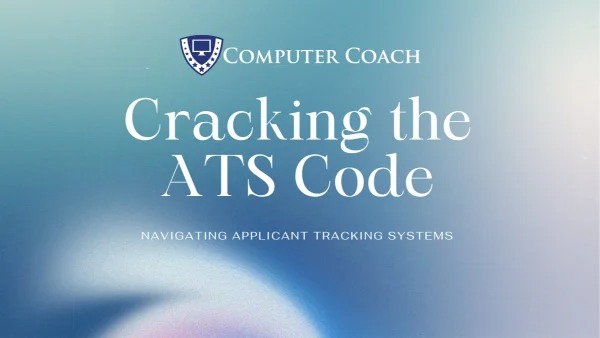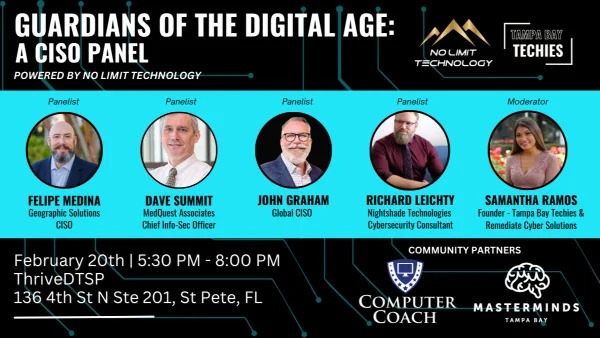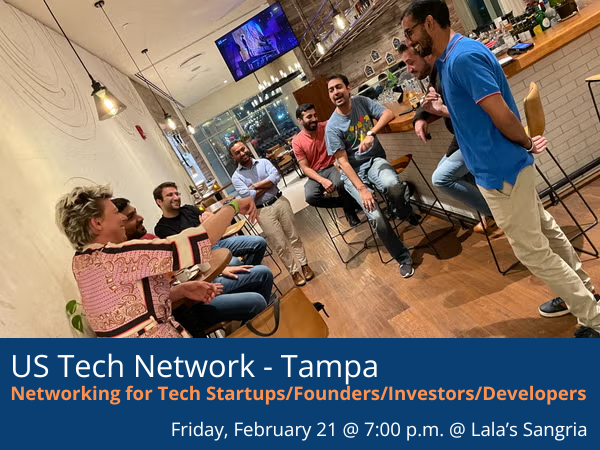
Here’s what’s happening in the thriving tech scene in Tampa Bay and surrounding areas for the week of Monday, March 17 through Sunday, March 23, 2025!
This list includes both in-person and online events. Note that each item in the list includes:
✅ When the event will take place
✅ What the event is
✅ Where the event will take place
✅ Who is holding the event

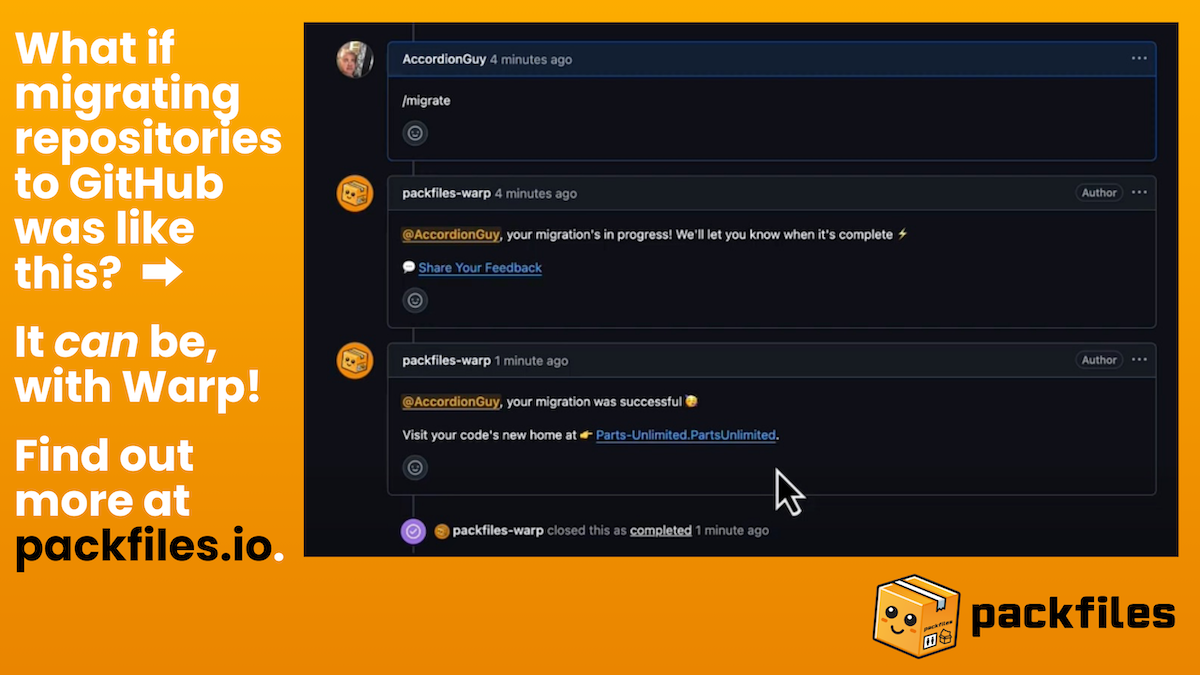
Packfiles’ SaaS, Warp, makes it easy for organizations to adopt GitHub. If your company is thinking about migrating from Azure DevOps, Bitbucket Server, or Gitlab, Packfiles can help.
Find out more at Packfiles’ site: packfiles.io!

Monday, March 17
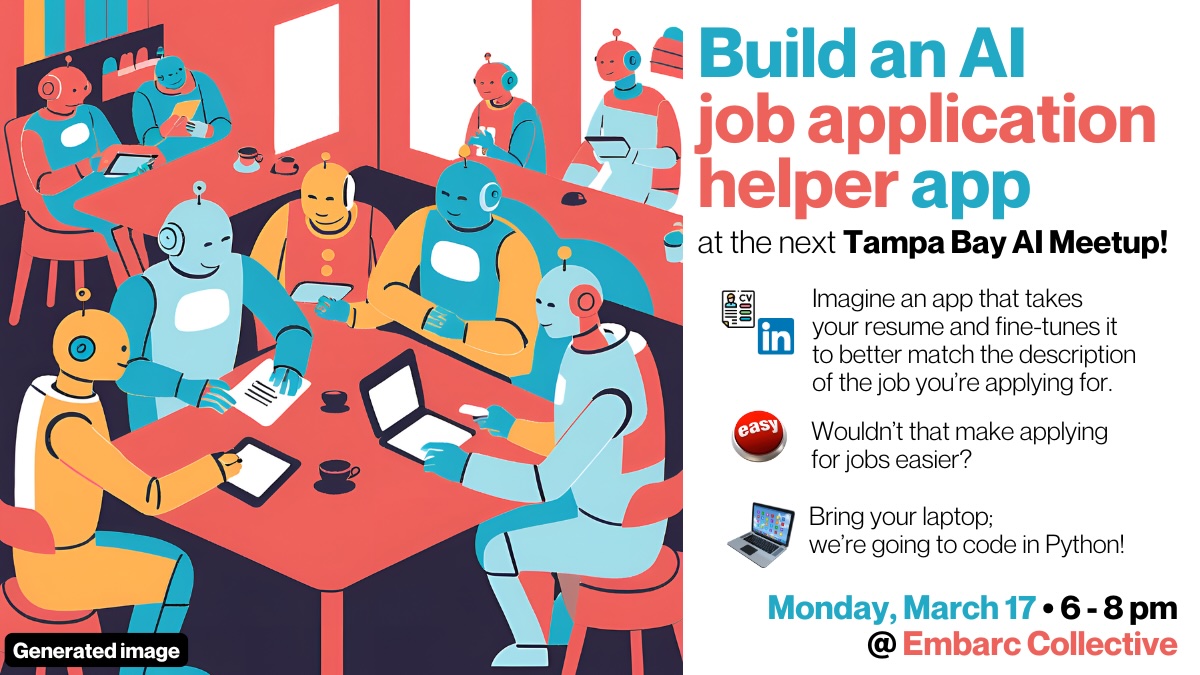
Monday at 6:00 p.m. at Embarc Collective (Tampa) — Tampa Bay AI Meetup will have a workshop where you can build an AI job application helper app that takes your resume and fine-tunes it to better match the description of the job you’re applying for. If recruiters have their ATS, you should have your own tools!
Find out more and register here.

Monday at Mad Hatters Ethnobotanical Tea Bar (St. Pete) at 6:00 p.m.: Saint Petersburg Artificial Intelligence Meetup Group is having their regular Monday meetup.
Find out more and register here.
Tuesday, March 18
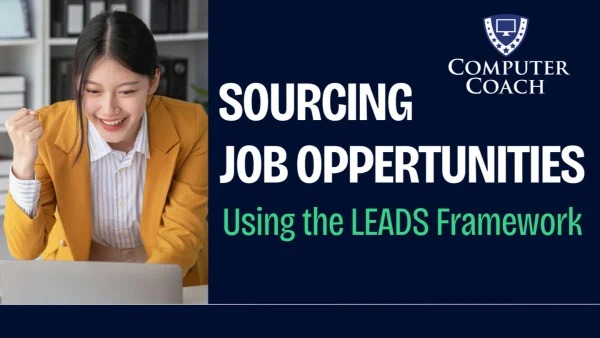 Tuesday at 10:00 a.m., online: Computer Coach presents Sourcing Job Opportunities, a webinar that will teach you how to uncover hidden job leads, connect with the right people, and use smarter search techniques to land your next job faster.
Tuesday at 10:00 a.m., online: Computer Coach presents Sourcing Job Opportunities, a webinar that will teach you how to uncover hidden job leads, connect with the right people, and use smarter search techniques to land your next job faster.
Find out more and register here.

Tuesday at 6:00 p.m. at Embarc Collective (Tampa): TIE Tampa Bay presents Breaking Barriers: Confronting Bias, Burnout & Reality of Female Leadership. Join this event for an insightful discussion with women entrepreneurs and leaders sharing their firsthand experiences and on-the-ground perspectives, as well as celebrating Women’s History Month!
Find out more and register here.

Tuesday at 6:00 p.m. at University boba tea house (Tampa): Tampa Artificial Intelligence Applications Meetup Group is holding a generative AI meetup.
Find out more and register here.

Tuesday at 6:00 p.m. at Jimmie.B.Keel library (Tampa): Tampa Bay Microsoft Fabric Analytics User Group (TFAB) is holding their monthly meeting.
Find out more and register here.
Wednesday, March 19
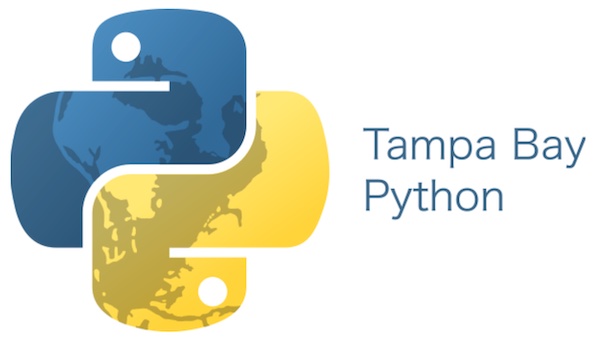
Wednesday at 5:00 p.m. at Embarc Collective (Tampa): Tampa Bay Python is holding a Python social! Join organizer Joe Blankenship for an evening of introductions and discussions on the Tampa Bay Python group and how they want to grow their community in 2025! Come and let them know what you think and what we can do together.
Find out more and register here.
| Event name and location |
Group |
Time |
World Toasters Toastmasters Club
Online |
Toastmasters Division E |
7:05 AM to 8:00 AM EDT |
St Pete Downtown Young Professional Networking Breakfast Connect your business
Hangar Restaurant, Albert Whitted Airport |
RGA Networking Professional Business Networking |
7:30 AM to 9:00 AM EDT |
NPI Profit Partners Chapter – Exchange Qualified Business Referrals
Panera Bread |
Network Professionals Inc. of South Pinellas (NPI) |
7:30 AM to 9:00 AM EDT |
NPI St. Pete Sunrise Chapter – Exchange Qualified Business Referrals
St Petersburg Yacht Club |
Network Professionals Inc. of South Pinellas (NPI) |
7:30 AM to 9:00 AM EDT |
Grow Your Business with focused Referral Networking
Sons of Italy Lodge |
BNI Tampa -Referral based networking |
7:30 AM to 9:00 AM EDT |
Tampa Highrisers Toastmasters
Hyde Park United Methodist Church |
Toastmasters District 48 |
7:45 AM to 8:45 AM EDT |
Career Transition & Job Seeker Networking & Support Meeting – In Person Meeting!
Corporate Center One |
Career Rebound – New Job or Career Search for Professionals |
9:00 AM to 11:00 AM EDT |
Lakewood Ranch Business Networking Lunch at Station 400, JOIN in and Connect
Station 400 |
Bradenton/Sarasota Networking Meetings and Mixers |
11:30 AM to 1:00 PM EDT |
NPI North St. Pete Networkers Chapter – Exchange Qualified Business Referrals
Carrabas Italian Grill |
Network Professionals Inc. of South Pinellas (NPI) |
11:30 AM to 12:45 PM EDT |
Lakewood Ranch/Sarasota Business Networking Lunch ~ Connect your busniess
Station 400 |
RGA Networking Professional Business Networking |
11:30 AM to 1:00 PM EDT |
Brandon Professional Networking Lucnh
Just Love Coffee Cafe |
RGA Networking Professional Business Networking |
11:30 AM to 1:00 PM EDT |
Breaking Into IT Project Management Your Step-by-Step Guide Webinar
Online |
Wesley Chapel PM and IT Connection |
12:00 PM to 1:00 PM EDT |
PortKey Books in Safety Harbor and snack/light meal afterwards
Online |
Bookish Outings-The Group that Goes to Bookstores! |
12:30 PM to 2:30 PM EDT |
Inspiring Authors & Book Immersion Meetup
Online |
Lady Lake Memoir Writing Meetup Group |
2:00 PM to 3:30 PM EDT |
Python Social!
Embarc Collective |
Tampa Bay Python |
5:00 PM to 7:00 PM EDT |
Wednesday Night Gaming
Nerdy Needs |
Brandon Boardgamers |
5:00 PM to 10:00 PM EDT |
Wednesday Board Game Night
Bridge Center |
Tampa Gaming Guild |
5:30 PM to 11:00 PM EDT |
Orlando Chess Association
West Osceola Library |
Chess in Orlando |
5:30 PM to 8:30 PM EDT |
The Fallen Lands
2103 Laceflower Dr |
Brandon and Seffner area AD&D and OSR Group |
6:00 PM to 9:30 PM EDT |
Casual Commander Wednesdays
Sunshine Games | Magic the Gathering, Pokémon, Yu-Gi-Oh! |
Sunshine Games |
6:00 PM to 11:00 PM EDT |
Board Game Night
Critical Hit Games |
Critical Hit Games |
6:00 PM to 11:00 PM EDT |
Great Big Trivia Wednesdays @ Terra Ceia Bay Country Club Palmetto 6-8PM
Terra Ceia Bay Country Club |
South Florida Poker, Music & Entertainment Group |
6:00 PM to 8:00 PM EDT |
Blockchain & Crypto Investors & Enthusiasts – International Blockchain Group
Online |
Blockchain and Crypto Investors and Enthusiasts |
6:30 PM to 8:00 PM EDT |
Game Night!
Southern Lights Brewing Company |
Drunk’n Meeples the Social Tabletop (Board) Gamers |
6:30 PM to 10:00 PM EDT |
Sun Coast Euchre Club
The Hanger Restaurant & Flight Lounge |
Suncoast Euchre Club -St Pete |
6:50 PM to 8:50 PM EDT |
CigarCitySec Meetup
Cigar City Brewing |
Central Florida CitySec |
7:00 PM to 10:00 PM EDT |
[Virtual] Tampa Bay Bitcoin Meetup: News, Markets, & Community
Online |
Tampa Bay Bitcoin |
7:00 PM to 9:00 PM EDT |
3D Printing Orientation: Models and Slicers
Online |
Tampa Hackerspace |
7:00 PM to 9:00 PM EDT |
Improve Your Communication and Presentation Skills
Online |
Communication Skills for Interviews and Presentations |
7:00 PM to 8:00 PM EDT |
Carrollwood Toastmasters Meetings meet In-Person and Online
Jimmie B. Keel Regional Library |
Toastmasters District 48 |
7:00 PM to 8:30 PM EDT |
Magic Pioneer Event
Sunshine Games | Magic the Gathering, Pokémon, Yu-Gi-Oh! |
Sunshine Games |
7:00 PM to 10:30 PM EDT |
Games & Grog @ The Grove SoHo!
Grove Soho |
Nerdbrew Events |
7:00 PM to 10:00 PM EDT |
The Golden Bowl by Henry James
O’Tooles Irish Pub and Restaurant |
Reading the Classics |
7:00 PM to 9:00 PM EDT |
Hans Zimmer concert movie
AMC Veterans 24 |
Gen Geek |
7:00 PM to 9:00 PM EDT |
New Beginnings & Old Rivalries
Online |
Central Florida AD&D (1st ed.) Grognards Guild |
7:00 PM to 10:30 PM EDT |
Games & Grog (Social Game Night in SoHo)
Grove Soho |
Nerd Night Out |
7:00 PM to 10:00 PM EDT |
Cardfight Vanguard!! OverDress Weekly
Sunshine Games | Magic the Gathering, Pokémon, Yu-Gi-Oh! |
Sunshine Games |
7:30 PM to 9:30 PM EDT |
| Return to the top of the list |
Thursday, March 20
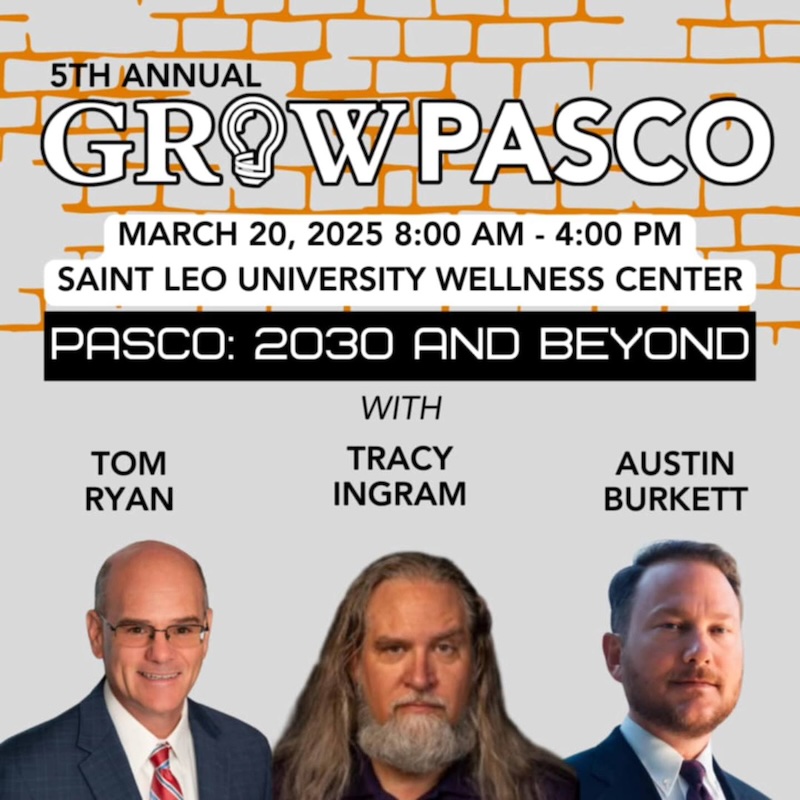
Thursday at Saint Leo University Wellness Center (St. Leo): The 5th Annual Grow Pasco event will take place! Its purpose: to help educate business owners throughout Pasco County and provide an environment to network with like-minded entrepreneurs. 15 breakout sessions led by over 30 business professionals and a keynote by Cope Notes’ Johnny Crowder.
Find out more and register here.

Thursday at 5:30 p.m. at Green Bench Brewing (St. Pete): Women in Tech and Entrepreneurship’s St. Pete Chapter is holding a casual gathering of high-performing, non-conforming women founders, tech workers, VCs, and hype girls.
Join WTE Founder & CEO Raechel Canipe, alongside St. Pete Ambassadors Karen Norris, Victoria Suarez, PMP, CSM, SAFe Agilist, STMP™, and Aimee Wera, for an evening of meaningful connections, candid conversations, and the kind of community that fuels success.
Find out more and register here.
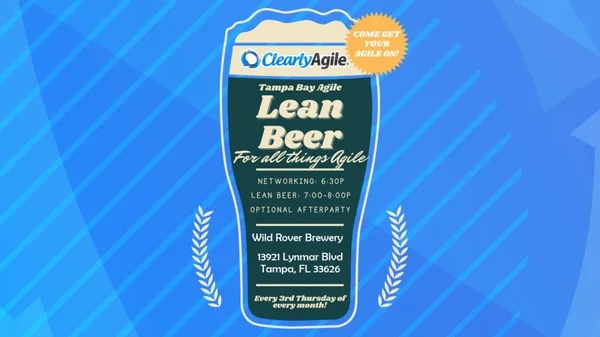
Thursday at 6:30 at Wild Rover Brewing Company (Tampa): Lean Beer Tampa is a great place to ask questions and share your stories of using Agile and Lean software approaches, over an adult beverage, if you choose. They discuss any topics on Agile and Lean that are of interest to whomever is gathered. You suggest the topics, then they prioritize that list democratically, through a good ole’ fashion vote. They manage our discussions via time boxes, and a Roman vote (drinks up/drinks down). Vegas rules apply!
Find out more and register here.

Thursday at 7:00 p.m. at the Neon Temple (Tampa): The Neon Temple, Tampa Bay’s security guild, is having their regular Thursday evening meeting featuring lightning talks! If you want to learn about cybersecurity and find out what’s going on in Tampa Bay’s cyber scene, this is the place.
Find out more here.

Thursday at 7:00 p.m., online: Break Into Cyber Security Group present a webinar — Five 21st century resume tips for techies. In this session they’ll highlight five 21st century approaches to freshen up your resume and catch the attention of hiring managers.
Find out more and register here.
Friday, March 21
Saturday, March 22
Sunday, March 23

About this list
How do I put this list together?
It’s largely automated. I have a collection of Python scripts in a Jupyter Notebook that scrapes Meetup and Eventbrite for events in categories that I consider to be “tech,” “entrepreneur,” and “nerd.” The result is a checklist that I review. I make judgment calls and uncheck any items that I don’t think fit on this list.
In addition to events that my scripts find, I also manually add events when their organizers contact me with their details.
What goes into this list?
I prefer to cast a wide net, so the list includes events that would be of interest to techies, nerds, and entrepreneurs. It includes (but isn’t limited to) events that fall under any of these categories:
- Programming, DevOps, systems administration, and testing
- Tech project management / agile processes
- Video, board, and role-playing games
- Book, philosophy, and discussion clubs
- Tech, business, and entrepreneur networking events
- Toastmasters and other events related to improving your presentation and public speaking skills, because nerds really need to up their presentation game
- Sci-fi, fantasy, and other genre fandoms
- Self-improvement, especially of the sort that appeals to techies
- Anything I deem geeky
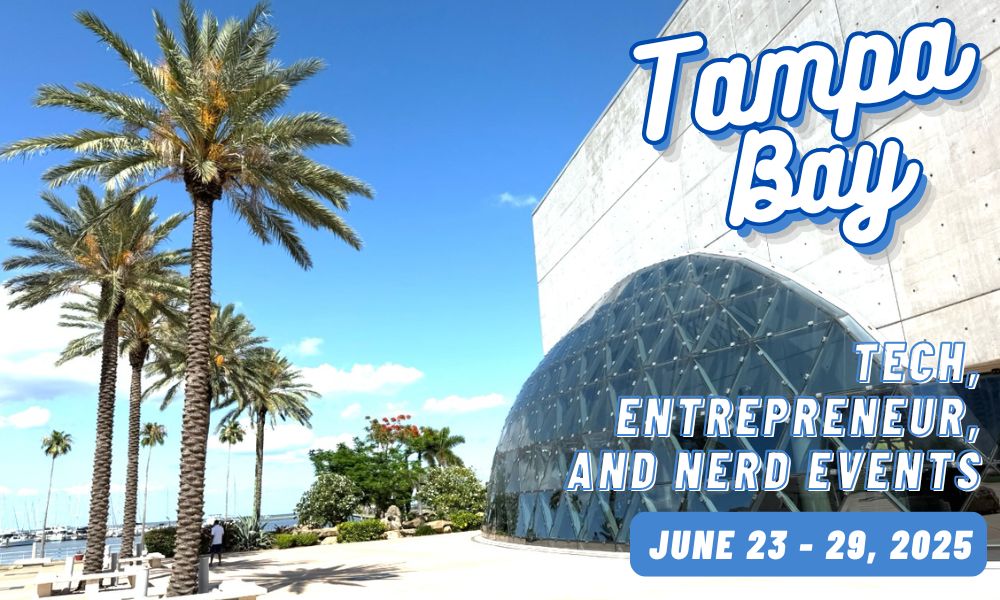

 Thursday at 6:00 p.m. at Embarc Collective (Tampa): Tampa AWS User Group is holding more than just a presentation, but a high-impact networking event for local tech professionals and AWS enthusiasts. Join them for an exclusive session co-presented by the PGA TOUR and NLP Logix, where they’ll explore how Gen AI and AWS are transforming the fan experience through real-time play-by-play commentary and more.
Thursday at 6:00 p.m. at Embarc Collective (Tampa): Tampa AWS User Group is holding more than just a presentation, but a high-impact networking event for local tech professionals and AWS enthusiasts. Join them for an exclusive session co-presented by the PGA TOUR and NLP Logix, where they’ll explore how Gen AI and AWS are transforming the fan experience through real-time play-by-play commentary and more.
